How To Tell If Someone Is Dealing With Depression? Be Cautious Of These 10 Signs
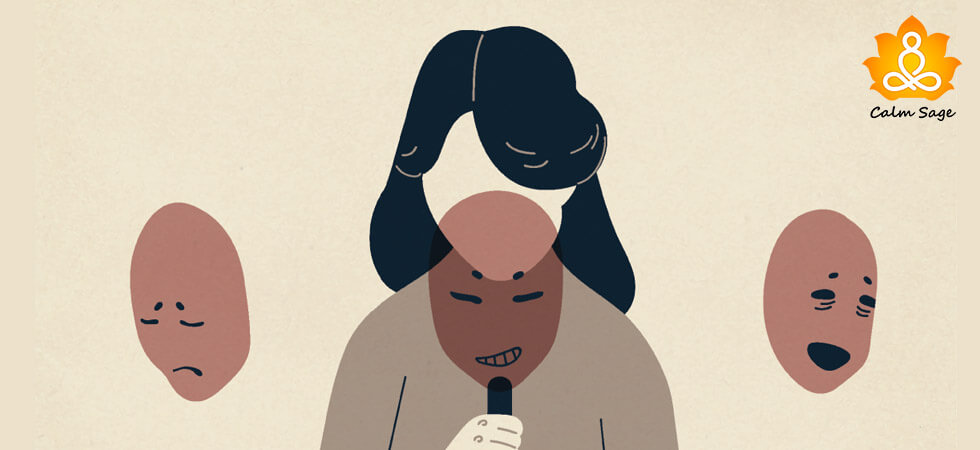
Depression has no face! We all have listened to this phrase. But on the flip side, we often get to read this that, be there for someone who is depressed. But, “How do I tell if someone is depressed” with it having no face?
This is the biggest dilemma! During my clinical days often a client used to look so content from his face and general life but by checking on a few important signs the picture of depression used to start knit together. That taught me an important lesson, depression doesn’t have a face but it does have certain signs that an individual manifests in his daily life. All you have to do is, to be all ears and eyes to that person.
So, from my personal and clinical experience, and available literature I am going to share with you 10 checkpoints that will answer your question- How to tell if someone is depressed.
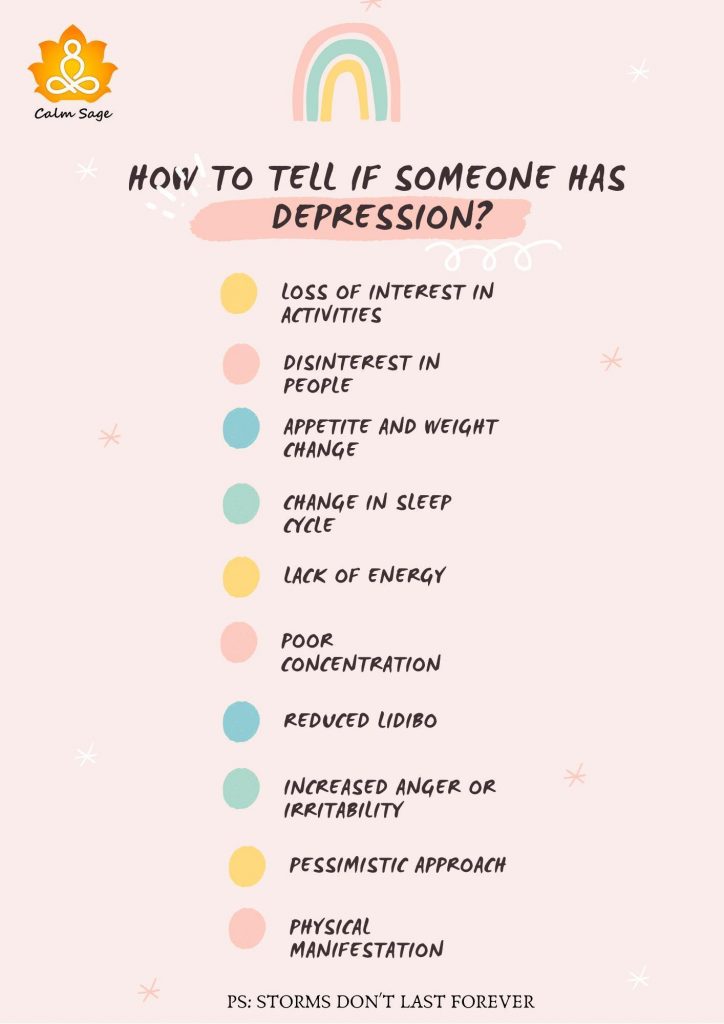
How to Know if Someone is Depressed?
Checkpoint 1 Loss of Interest in Activities

Do you see a person not enjoying activities they used to, with the same level of excitement and happiness? Or have they lost pleasure in activities they once enjoyed? You might take it as a sign. We have our lows and on those days it is not that easy to find happiness in activities that make us super happy. But, in the case of depression, this lasts longer than a day. Usually, if you see them losing interest in their favorite activities for more than two to three weeks now, then you should not avoid this sign.
Checkpoint 2 Disinterest in People
Is the person avoiding you or his favorite people? Not because they are mad at them or have a busy schedule but because they have lost their genuine interest in meeting people. Or even if they will continue meeting everyone, you won’t be able to see them enjoying it that much. A vibe of detachment is likely to follow. Even when you ask them why they are being distant, they won’t open up much about it.
Note: You might even see them happy in the company of others (but that’s not an honest response). This is known as ‘smiling depression’ that is a defense mechanism to hide one’s symptoms when with others.
Checkpoint 3 Appetite and Weight Change
Now, this checkpoint has poles, either you will see a person eating enormous amounts of food or no food at all. It is important that you have a point of reference here. Do they always eat this less? Or Do they always eat this much? If yes then it’s okay. But, if this change is sudden (without a motive to lose or gain weight) then you should be considerate of it.
As a result of sudden drift in their eating pattern, you might also notice changes in their body weight (evidently). This weight change can also exacerbate depression. So, be careful of it.
Checkpoint 4 Change in Sleep Cycle
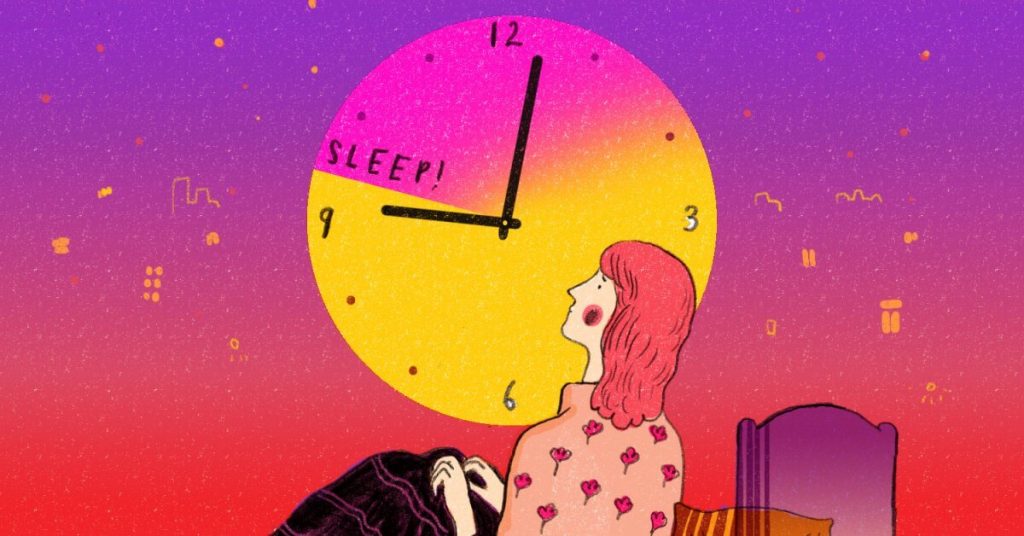
With unhelpful thoughts being played in the loop either the person will end up having sleepless nights or to find an escape from the same they might sleep excessively. Our sleeping patterns and mood are closely linked. So, this checkpoint is definitely important. You may also ask subtle questions to them like- Hey I am unable to sleep these days, does the same happen to you? To gain insight.
Checkpoint 5 Lack of Energy
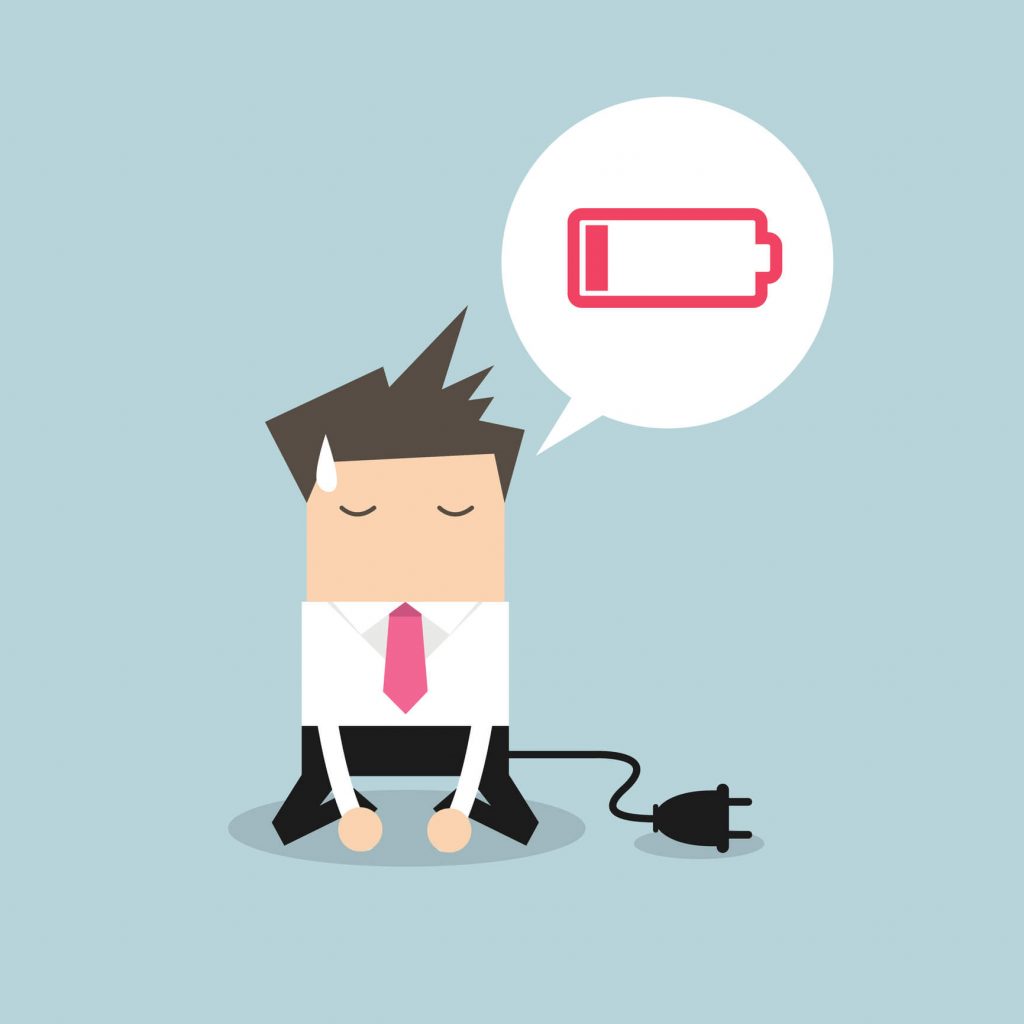
Depression does take out all the energy from an individual and often it is clearly visible in the way they walk and talk. This tiredness is not an outcome of tiresome day or any substance use, it might be because of lack of sleep and persistent overwhelming thoughts (signs of depression). You might easily notice them being drained most of the days.
Checkpoint 6 Poor Concentration

You might give them an instruction or tell them an entire story but after a while, you will notice that they weren’t there following what you just said. This happens because they have poor concentration and loss of focus, because of the feelings of depression hovering over them. Not only this, often while communicating with you they may trail off (without much awareness of it).
Checkpoint 7 Reduced Lidibo
An individual is likely to show the low sexual drive as a sign of depression. This change is majorly linked with other signs of depression. This includes a low level of energy, loss of interest in pleasurable activities, and low self-esteem. That’s what makes it an important checkpoint as it will hint at the other signs as well.
Checkpoint 8 Increased Anger or Irritability
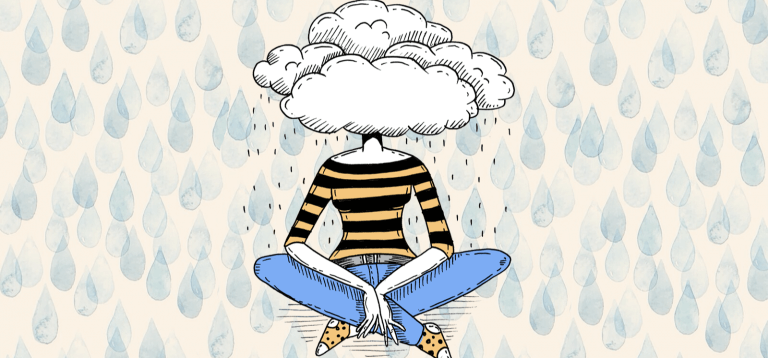
The pranks and jokes that they generally used to enjoy, might become a source of irritability for them. This again works as a defense mechanism as they suppress their feeling of depression and replace them with other intense emotions. Generally, these intense emotions are anger and irritability. If you recently saw your loved one being mad over littlest of things or irritated even when you walk past them, you should be aware of other signs.
Checkpoint 9 Pessimistic Approach

Studies have shown that depression is closely linked with a pessimistic approach. They often have a negative viewpoint towards life and especially the future. If you will try and communicate with them on their future plans, the probability of getting a pessimistic response or complete avoidance can be clearly seen. This happens not because they are being secretive but, they are so unsure about it.
Checkpoint 10 Physical Manifestation
If your loved one is having depression you might also see its result on their physical health. They might report severe, frequent, and several aches in the body like backache, headache, and others. They might also have certain digestive issues. Our physical and mental health is closely related to each other, and the disturbance in mood can easily be seen in physical health.
Note: If a person is already having health conditions such as arthritis, diabetes (type 2), cancer, or chronic pain then you should be even more aware of these signs.
Checkpoint 10+1 Alcohol or Drug Use For Escape
They might start crawling towards alcohol use or abuse to find their sweet escape. And if they already use a substance, you might notice a sudden increase in their consumption level. This might seem like the right coping mechanism to them at that moment. If you too see a change like this in your closed one, don’t shy away from asking them.
Note: These signs don’t define them as an individual. They are just an outward manifestation of their neurochemical imbalance, which leads to depression.
These were the 10 checkpoints that we used to ask during the mental health assessment of an individual. Because as said earlier identifying depression is more than face reading. It is like diving in a deep pool of emotions to get the answer of how to tell if someone has depression.
Of course, it is not as easy as it sounds. But, if you truly care for someone you love you have to walk that extra mile for their and your happiness.
Important Note: If you can trace down 5 or more of these signs in someone you love we would suggest you start communicating over it. Also consulting a mental health professional is recommended.
More power to you…
You May Like These Also:
12 Gift Ideas For A Friend Struggling With Depression




















